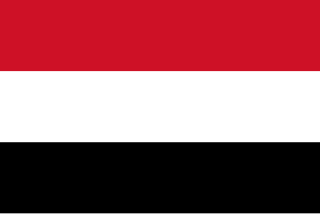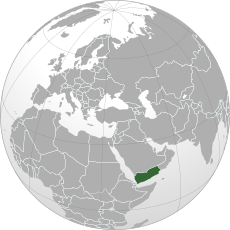
United Nations Security Council Resolution 678, adopted on 29 November 1990, after reaffirming resolutions 660, 661, 662, 664, 665, 666, 667, 669, 670, 674 and 677, the council noted that despite all the United Nations efforts, Iraq continued to defy the Security Council.

The United Nations Security Council veto power is the power of the five permanent members of the UN Security Council to veto any "substantive" resolution. They also happen to be the nuclear-weapon states (NWS) under the terms of the Treaty on the Non-Proliferation of Nuclear Weapons. However, a permanent member's abstention or absence does not prevent a draft resolution from being adopted. This veto power does not apply to "procedural" votes, as determined by the permanent members themselves. A permanent member can also block the selection of a Secretary-General, although a formal veto is unnecessary since the vote is taken behind closed doors.
The Responsibility to Protect is a global political commitment which was endorsed by all member states of the United Nations at the 2005 World Summit in order to address its four key concerns to prevent genocide, war crimes, ethnic cleansing and crimes against humanity. The doctrine is regarded as a unanimous and well established international norm over the past two decades.

United Nations Security Council resolution 1397 was a resolution adopted on 12 March 2002 by the United Nations Security Council. The Council demanded an end to the violence that had taken place between the Israeli and Palestinian sides since September 2000. It was the first Security Council resolution to call for a two-state solution to the conflict.

The Cabinet of Yemen refers to the governing body of the internationally recognized Yemen government led by the Chairman of the Presidential Leadership Council Rashad al-Alimi who replaced former President of Yemen Abdrabbuh Mansur Hadi on 7 April 2022 as the new President of Yemen. He then selected new cabinet members of the Yemeni Government.

Resolution 1973 was adopted by the United Nations Security Council on 17 March 2011 in response to the First Libyan Civil War. The resolution formed the legal basis for military intervention in the Libyan Civil War, demanding "an immediate ceasefire" and authorizing the international community to establish a no-fly zone and to use all means necessary short of foreign occupation to protect civilians.
Abdul-Malik Badruldeen al-Houthi is a Yemeni politician and religious leader who serves as the leader of the Houthi movement, a revolutionary movement principally made up of Zaidi Muslims. His brothers Yahia and Abdul-Karim are also leaders of the group, as were his late brothers Hussein, Ibrahim, and Abdulkhaliq. Abdul-Malik Houthi is the leading figure in the Yemeni Civil War which started with the Houthi takeover in Yemen in the Saada Governorate in northern Yemen.

United Nations General Assembly Resolution 68/262 was adopted on 27 March 2014 by the sixty-eighth session of the United Nations General Assembly in response to the Russian annexation of Crimea and entitled "territorial integrity of Ukraine". The nonbinding resolution, which was supported by 100 United Nations member states, affirmed the General Assembly's commitment to the territorial integrity of Ukraine within its internationally recognized borders and underscored the invalidity of the 2014 Crimean referendum. Eleven nations voted against the resolution, while 58 abstained, and a further 24 states were absent when the vote took place.

The Houthi takeover in Yemen, also known as the September 21 Revolution, or 2014–15 coup d'état, was a popular revolution against Yemeni President Abdrabbuh Mansur Hadi led by the Houthis and their supporters that pushed the Yemeni government from power. It had origins in Houthi-led protests that began the previous month, and escalated when the Houthis stormed the Yemeni capital Sanaa on 21 September 2014, causing the resignation of Prime Minister Mohammed Basindawa, and later the resignation of President Abdrabbuh Mansur Hadi and his ministers on 22 January 2015 after Houthi forces seized the presidential palace, residence, and key military installations, and the formation of a ruling council by Houthi militants on 6 February 2015.
Mohammed Ali al-Houthi is a Yemeni political figure who is the former President of the Revolutionary Committee or Revolutionary Council, a body formed by Houthi militants and the de facto President of Yemen. He was one of the military field commanders who led the group's seizure of the Yemeni capital Sana’a in September 2014, and eventually became the de facto leader of Yemen after the Houthi takeover of the Yemeni government in 2015. He is a cousin of Abdul-Malik Badreddin al-Houthi, the group's leader.

The Yemeni Civil War is an ongoing multilateral civil war that began in late 2014 mainly between the Rashad al-Alimi-led Yemeni government and the Houthi armed movement, along with their supporters and allies. Both claim to constitute the official government of Yemen.

On 26 March 2015, Saudi Arabia, leading a coalition of nine countries from West Asia and North Africa, launched an intervention in the Yemeni Civil War in response to calls from the president of Yemen Abdrabbuh Mansur Hadi for military support after he was ousted by the Houthi movement. The conflict ignited between the government forces, the Houthi rebels and other armed groups after the draft constitution and power-sharing arrangements collapsed, despite progress in the political transition led by the United Nations at that time, leading to an escalation of violence in mid-2014. The Houthis and allied units of the armed forces seized control of Sana’a and other parts of the country in September 2014 and in the following months. This prompted President Hadi to ask Saudi Arabia to intervene against the Iranian-backed Houthis.
International reactions to the Saudi-led intervention in Yemen of 2015 were mixed. Most other Arab League nations and several Western governments backed the Saudi Arabia-led military coalition, but other governments warned against an escalation in the violent situation in Yemen.

United Nations Security Council Resolution 2231 was a 20 July 2015 resolution endorsing the Joint Comprehensive Plan of Action on the nuclear program of Iran. It sets out an inspection process and schedule while also preparing for the removal of United Nations sanctions against Iran. The 15 nations on the Security Council unanimously endorsed the resolution, which had been negotiated by the permanent members of the United Nations Security Council—China, France, Russia, the United Kingdom, and the United States—plus Germany, the European Union, and Iran.

United Nations Security Council Resolution 2564 was unanimously adopted on 25 February 2021. It calls for a nationwide sanctions in Yemen. According to the resolution, the Security Council renews ban on destabilizing actors in Yemen, but Houthis reject latest resolution.

The eleventh emergency special session of the United Nations General Assembly opened on 28 February 2022 at the United Nations headquarters. It addresses the Russian invasion of Ukraine. Maldivian politician Abdulla Shahid served as President of the body during this time.

United Nations Security Council Resolution 2623 called for the eleventh emergency special session of the United Nations General Assembly on the subject of the 2022 Russian invasion of Ukraine. Albania and the United States introduced the resolution before the United Nations Security Council, which adopted it on 27 February 2022. Russia voted against while China, India and the United Arab Emirates abstained. As this was a procedural resolution, no permanent member could exercise their veto power.

United Nations General Assembly Resolution ES‑11/4 is the fourth resolution of the eleventh emergency special session of the United Nations General Assembly, adopted on 12 October 2022, following Resolution ES-11/3 which was adopted on 7 April 2022. Resolution ES‑11/4 declares that Russia's "so-called" referendums in the Donetsk, Kherson, Luhansk and Zaporizhzhia oblasts and the subsequent attempted annexation are invalid and illegal under international law. It calls upon all states to not recognize these territories to be part of Russia. Furthermore, it demands that Russia "immediately, completely and unconditionally withdraw" from Ukraine as it is violating its territorial integrity and sovereignty. The resolution was passed with an overwhelming vote of 143 in favour, 5 against and 35 abstaining. This resolution achieved more votes in favor of condemning Russia's actions than Resolution ES-11/1, the initial resolution on the Russian invasion of Ukraine which demanded that Russia withdraw its forces from Ukraine.

The United Nations Security Council Resolution 2201 was unanimously adopted on 15 February 2015. The Security Council condemned the actions of the Houthis and demanded them to withdraw from the state institutions and release Yemeni president Abdrabbo Mansour Hadi.














